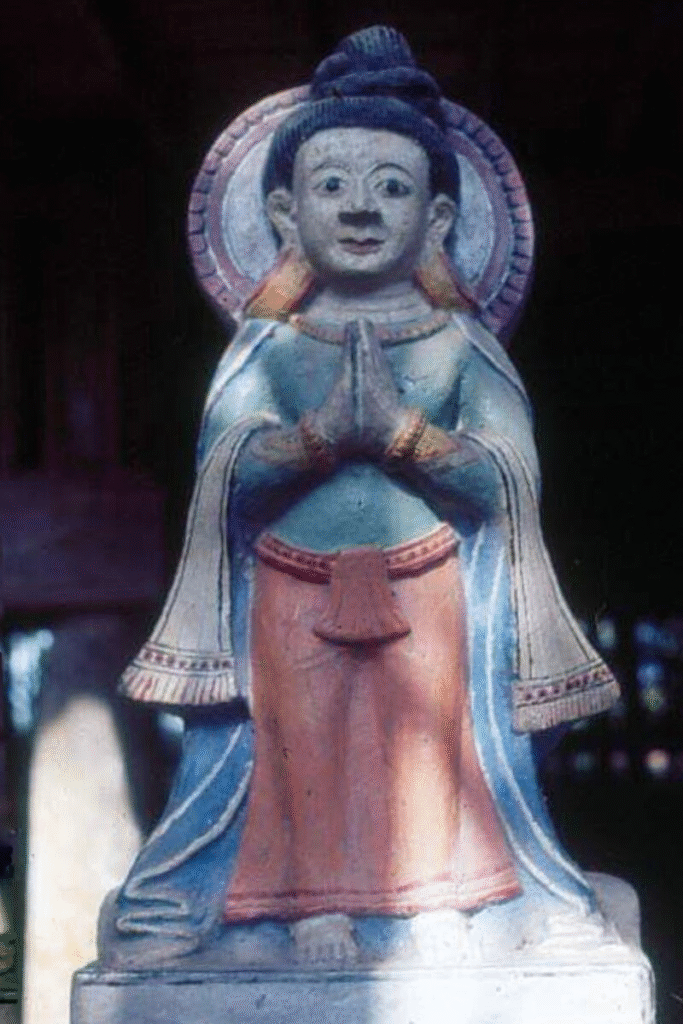By Sit Mone
There is a well-known Burmese proverb:
“The King must keep his vow, just as the common man must keep his promise.”
မင်းမှာသစ္စာ လူမှာကတိ။
In Sanskrit, this principle is known as “Law Ka Par La,” meaning a sense of shame and fear of wrongdoing — the inner moral restraint that prevents one from violating conscience.
Today’s story recalls a remarkable example from Burmese history — how a true king once kept his vow, guided by Law Ka Par La, the sacred sense of responsibility and shame.
The Story of King Min Htee of Yakhine (Rakhine)

လောင်းကြက်ထီးနန်း သက်တော်ရှည်ဘုရင် မင်းထီးမင်းတရား Photo credit Arezarni – in Wikipedia
King Min Hti, depicted as god with four fingers
King Min Htee was known for his integrity and courage.
During his reign, palace staff commonly chewed betel and would wipe their stained fingers on the gilded pillars. Over time, these beautiful golden pillars became blotched with red betel stains and white lime marks.
Disturbed by this disrespect, the King issued a royal decree:
“Whoever stains the palace pillars with betel-stained fingers shall have his index finger cut off immediately.”
The order was severe but just. From that day forward, everyone in the palace — ministers, princes, and servants alike — obeyed it strictly.
The King’s Test of Integrity
One day, quite by accident, the King himself wiped his betel-stained finger on a pillar.
A few days later, when the palace was being repainted for the arrival of a foreign envoy, the King asked why. None dared to reply — until a brave attendant stepped forward and said, “Your Majesty, it was you who stained the pillar.” He even recorded the exact date and time of the incident.
Realizing his own guilt, King Min Htee immediately drew his sword and cut off his own finger in front of his stunned court.
Thus, he lived up to his own law — a king who ruled with courage and shame, true to his vow and conscience.
A Legacy in Stone
According to Burmese historian U Pho Kyar, there stands a statue at Laung Kyet showing a king with only four fingers — believed to represent King Min Htee himself, a silent testament to honor and accountability.
A Question for Our Time
The kings of old upheld their vows and left behind a legacy of conscience.
But what of our new king in Nay Pyi Daw today?
Does he keep his vow?
Note: This article was written by Sit Mone, a blogger who once shared such historical and moral reflections online. He discontinued writing after facing intimidation from junta-linked operatives — a loss for Burma’s free thought and honest expression.






